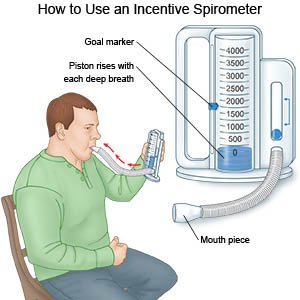Myotonic Dystrophy
Medically reviewed by Drugs.com. Last updated on Jun 5, 2024.
Myotonic dystrophy is an inherited disease that leads to muscle weakness and loss. Myotonic dystrophy causes your muscles to become stiff when you use them. It also causes your muscles to have difficulty relaxing. Myotonic dystrophy affects other parts of your body, such as your heart, eyes, brain, and stomach. Myotonic dystrophy usually begins in adult life.
WHILE YOU ARE HERE:
Informed consent
is a legal document that explains the tests, treatments, or procedures that you may need. Informed consent means you understand what will be done and can make decisions about what you want. You give your permission when you sign the consent form. You can have someone sign this form for you if you are not able to sign it. You have the right to understand your medical care in words you know. Before you sign the consent form, understand the risks and benefits of what will be done. Make sure all your questions are answered.
Deep breathing exercises:
Take deep breaths and cough 10 times each hour. This will decrease your risk for a lung infection. Take a deep breath and hold it for as long as you can. Let the air out and then cough strongly. Deep breaths help open your airway. You may be given an incentive spirometer to help you take deep breaths. Put the plastic piece in your mouth and take a slow, deep breath. Then let the air out and cough.
 |
Eating and swallowing:
A healthcare provider may work with you if you have trouble swallowing. He or she will show you safer ways to swallow and teach you which foods and liquids are safe to eat and drink. He or she may also recommend soft foods or thick liquids to make it easier to swallow. In some cases, you may receive nutrition through an IV or tube into your stomach.
A heart monitor
is also called an ECG or EKG. Sticky pads placed on your skin record your heart's electrical activity.
Medicines:
- Muscle relaxers help decrease pain and muscle spasms.
- Pain medicine may be given. Do not wait until the pain is severe before you ask for more medicine.
- Motility medicine is given to help your stomach muscles move food and liquids out of your stomach faster. This medicine also may help you digest food better.
Tests:
- Blood tests are done to check for muscle damage and genetic markers of myotonic dystrophy.
- An MRI takes pictures to look for changes in your muscles. You may be given contrast liquid to help the muscles show up better in the pictures. Tell the healthcare provider if you have ever had an allergic reaction to contrast liquid. Do not enter the MRI room with anything metal. Metal can cause serious injury. Tell a healthcare provider if you have any metal in or on your body.
- An electromyography measures the electrical activity of your muscles at rest and with movement.
- A biopsy is a procedure to remove a small sample of muscle. Your healthcare provider will send the sample to a lab for tests.
Treatment:
- Assistive devices , such as braces, crutches, or wheelchairs, help you move. They can also help protect and support your body to prevent injury.
- Physical and occupational therapy are programs to help you learn how to take care of yourself. A physical therapist will teach you exercises to help improve movement and strength and decrease pain. An occupational therapist will teach you skills to help with your daily activities.
Treatment options
The following list of medications are related to or used in the treatment of this condition.
RISKS:
Myotonic dystrophy can lead to a condition called scoliosis (curving of the spine). It may also affect other organs. You may pass myotonic dystrophy on to your children.
CARE AGREEMENT:
You have the right to help plan your care. Learn about your health condition and how it may be treated. Discuss treatment options with your healthcare providers to decide what care you want to receive. You always have the right to refuse treatment.© Copyright Merative 2024 Information is for End User's use only and may not be sold, redistributed or otherwise used for commercial purposes.
The above information is an educational aid only. It is not intended as medical advice for individual conditions or treatments. Talk to your doctor, nurse or pharmacist before following any medical regimen to see if it is safe and effective for you.
Learn more about Myotonic Dystrophy
Treatment options
Care guides
Symptoms and treatments
Medicine.com guides (external)
Further information
Always consult your healthcare provider to ensure the information displayed on this page applies to your personal circumstances.
